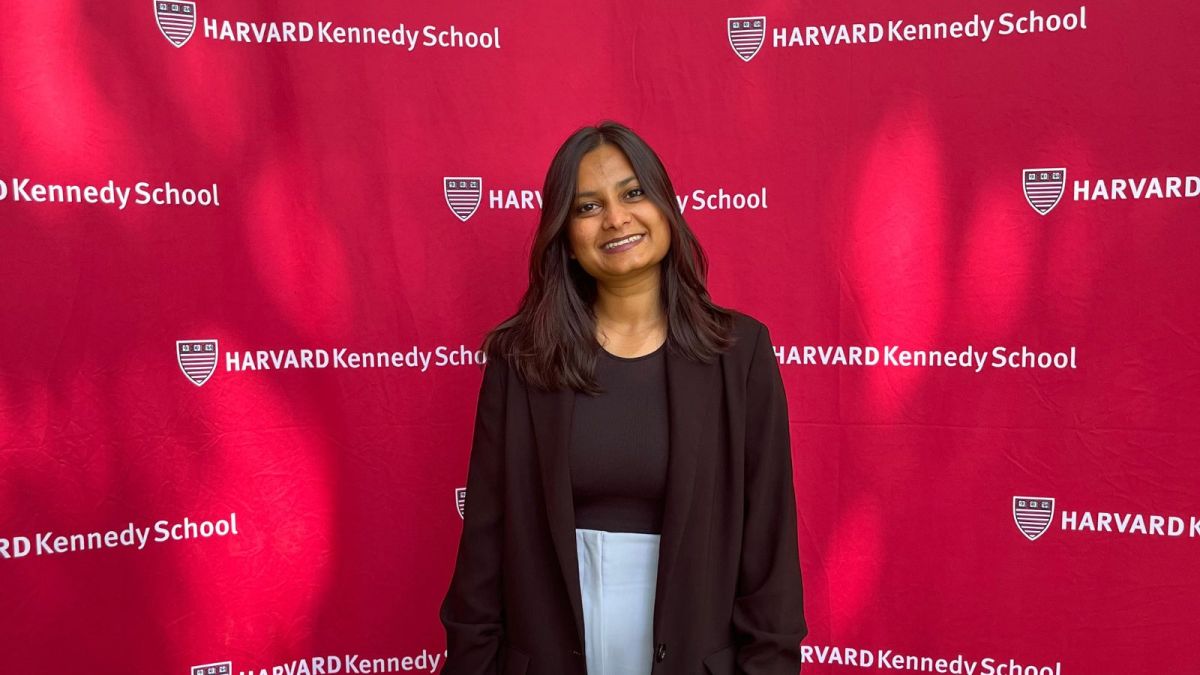Deeksha Teri covers education and has worked with the The Hindu (print division), WION and Stonebow Media. She is an alumnus of The University of Lincoln and The University of Delhi. ... Read More
© IE Online Media Services Pvt Ltd

(In this series, indianexpress.com will talk to Indian students who have secured admission to some of the top colleges in the world or the Ivy League colleges. They will share their journey of admission – from deciding which course and college, to the importance of SoPs, LoRs, documents and more)
– Ridhi Aggarwal
Following my undergraduate studies, in 2016 my compass pointed towards the non-profit sector. While my classmates ventured towards private for-profit organisations, I wanted to explore what the socio-economic inequalities we had read and experienced so extensively looks like when approached from a problem-solving perspective. This led me to work alongside NGOs, where the collective mission was to revitalise education in Delhi’s underserved slums by ensuring space for artistic skills beyond academics to flourish, and then to conceptualise novel, sustainable livelihood strategies for women who had faced the brutality of trafficking.
While I, of course, did not solve any of these deep-rooted issues in our society, I felt the full weight of the expectation for young skilled individuals to contribute to the best of our abilities. In 2017, I also worked at Pension Parishad as a Young India Fellow at Ashoka University. Here, I found myself deeply moved by the narratives of the elderly, many of whom were caught in a relentless struggle to secure their pensions, a fundamental right often denied to them.
The decision to venture into Harvard was neither impromptu nor purely aspirational. I sought an academic sanctuary that would refine my quantitative faculties while simultaneously enabling me to bridge the chasm between economic theories and the lived realities of developing countries.
While esteemed institutions like the Paris School of Economics, Sciences Po, Oxford, and Yale were enticing in their own right, Harvard’s MPA/ID programme resonated with me on multiple levels. The allure wasn’t just its reputation, but the promise of an environment enriched by a diverse cohort, the guidance of celebrated faculty members, and the expansive avenues that lay beyond the programme.
To budding scholars contemplating a similar journey, let me share some insights. Every university has its own methods of assessing applications and each programme within that university would have further specific requirements to be considered an ideal candidate.
Having said that, baseline requirements for each university would be:
– GRE/GMAT scores
– TOEFL/IELTS scores
– Statement of Purpose
– Official university transcripts
– Letters of Recommendation
For selection, European universities’ primary focus is on your academic achievements since the focus of the course would also then be academically rigorous and they want to make sure you have experience in intense programmes and can handle their mathematical approach well. For American universities, while academic prowess is certainly valued, there is an evident appetite for genuine, impactful narratives — stories that encapsulate challenges faced, lessons learned, and personal growth. And in some delightful cases, your adventures could overshadow any academic hiccups from yesteryears.
A pro-tip for aspirants? The statement of purpose is your canvas. Paint vividly.
My personal canvas portrayed my dedicated pursuit to spotlight the unsung heroines of the domestic realm. It was a path less-travelled, venturing into international organisations driven by passion (although I do not support international organisations extracting the fruit of your labour and sunk cost of education for nothing in return), while securing paychecks from full-time work. So, when you pick up that brush, ensure your journey, your essence, and your unique magic shine through.
Another important and pivotal step is securing Letters of Recommendation. These letters serve as external validations of your character, capabilities, and contributions. Written by individuals who have closely witnessed your academic or professional journey, they offer universities a third-person perspective on your potential and suitability for a programme. Their significance cannot be overstated.
While your Statement of Purpose is a personal testament, these letters provide an objective corroboration of your claims. It is essential to approach mentors, professors, or supervisors who not only know you well but can also articulate your strengths, achievements, and areas of growth with clarity and conviction. A well-penned Letter of Recommendation can often be the tipping point in decisions, especially when pitted against equally qualified candidates. In the ongoing debate between prominence and close association, I would always advise seeking recommendations from those familiar with your work and aspirations, rather than from organisational heads who only know you as a name on a paycheck.
For those considering overseas programmes, starting preparations a year in advance is prudent. Begin by reaching out to potential contacts, researching programmes, and understanding the selection criteria. Engaging with programme alumni on platforms such as LinkedIn can offer invaluable insights, as can tapping into one’s own alumni network.
Transitioning to Harvard was an emotional rollercoaster. Navigating a new culture, decoding academic norms, and the eerie quiet (and the conspicuous absence of barking dogs) was…let’s just say, an experience. A year down the line, and here I am, carving out my niche in this new world. I have donned the hat of the Co-chair of the Women’s Caucus at the Harvard Kennedy School (HKS), championing gender equality.
The takeaway? Dream big, surround yourself with a tribe that uplifts you, and never underestimate the power of those grounding calls back home. In reflection, has this endeavour at Harvard been worth every ounce of effort and every moment of introspection? Absolutely.